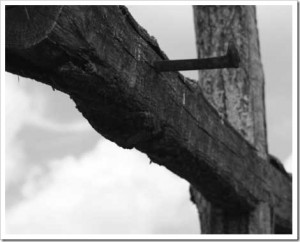 Cardinal John O’Connor was known for many things during his tenure as Archbishop of New York City (1984-2000). I think of him often, but most recently I was reminded of O’Connor’s courage when I remember how he handled being confronted by a group of homosexuals while celebrating Mass in St. Patrick’s Cathedral. The cardinal conducted himself with absolute respect for the body and blood of Christ which was being distributed at the time of the disruption, and later told the press that the Mass would only be halted “over my dead body.”
Cardinal John O’Connor was known for many things during his tenure as Archbishop of New York City (1984-2000). I think of him often, but most recently I was reminded of O’Connor’s courage when I remember how he handled being confronted by a group of homosexuals while celebrating Mass in St. Patrick’s Cathedral. The cardinal conducted himself with absolute respect for the body and blood of Christ which was being distributed at the time of the disruption, and later told the press that the Mass would only be halted “over my dead body.”
I always admired his courageous defense of truth. After the incident, a very dear Catholic priest friend told me that he felt that Cardinal O’Connor was a “white martyr”—a man who suffered in defense of his faith without shedding blood.
In this current age, another cardinal of the Roman Catholic Church has again spoken of martyrdom, though in a different context and for very good reasons. Cardinal Francis George, after being attacked by homosexuals because of his defense of truth, is quoted as saying: “Speaking a few years ago to a group of priests, entirely outside of the current political debate, I was trying to express in overly dramatic fashion what the complete secularization of our society could bring.” He continues:
I am (correctly) quoted as saying that I expected to die in bed, my successor will die in prison, and his successor will die a martyr in the public square. What is omitted from the reports is a final phrase I added about the bishop who follows a possibly martyred bishop: “His successor will pick up the shards of a ruined society and slowly help rebuild civilization, as the Church has done so often in human history.” What I said is not “prophetic” but a way to force people to think outside of the usual categories that limit and sometimes poison both private and public discourse.
In a sense, Cardinal George was prophetic when he spoke those words. Earlier this year when he publiclyclarified the Church’s immutable teaching on homosexual “marriage,” he was roundly attacked by proponents of homosexual rights.
This sort of acrimony seems to be the attitude of choice today as our society moves further and further away from loving God, respecting His laws, and living out His will. Who could ever have imagined a time when a state attorney general would make a statement that Catholic hospitals cannot deny hospital “privileges” to an abortionist?
In Washington, much the same situation is occurring: “Attorney General Bob Ferguson issued an opinion . . . saying that every public hospital in the state—which might include religiously-run hospitals like Catholic hospitals—must provide abortions.” Furthermore, “Those hospitals must continue to offer ‘substantially equivalent benefits’ in the form of contraception and abortion despite their religious persuasions. The only way to get around the requirement is by dropping maternity care.”
When we take the time to ponder the situation in our society today, I recommend thinking about these words by Professor Peter Jones.
Are we ready for Christian witness in a culture so hostile that it may cost us our livelihood and our freedom? Are we training our children to uncompromising boldness in the face of the intimidating lions of an all-is-one, genderless pagan civilization? For Christians, this future will not be business as usual, but it will, by God’s grace, be a time of unusual spiritual revival, since we will have to learn to depend entirely upon Him. As Scripture says, Let those who suffer according to God’s will entrust their souls to a faithful Creator while doing good (1 Peter 4:19).
How are we preparing our own families for the persecution that well may come our way?



